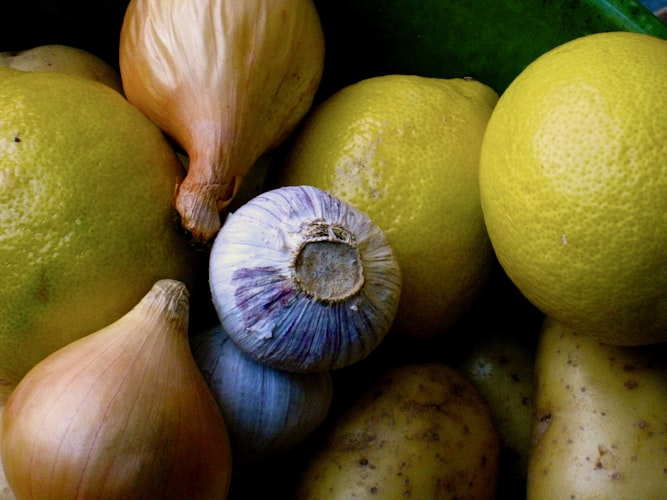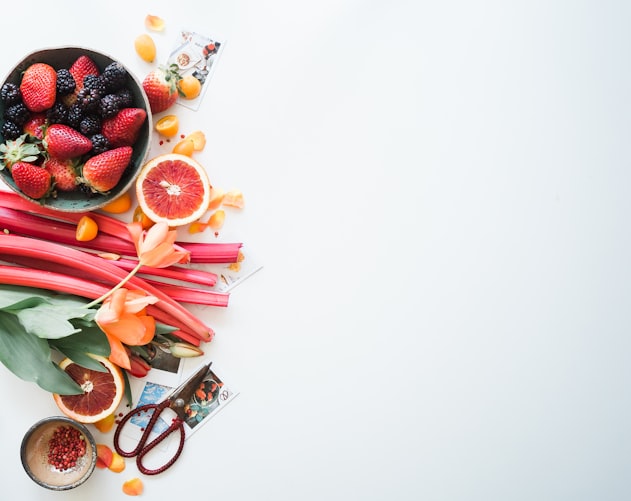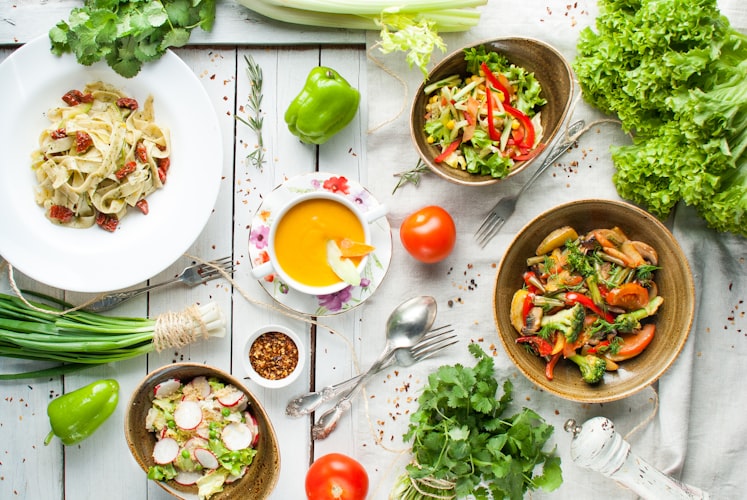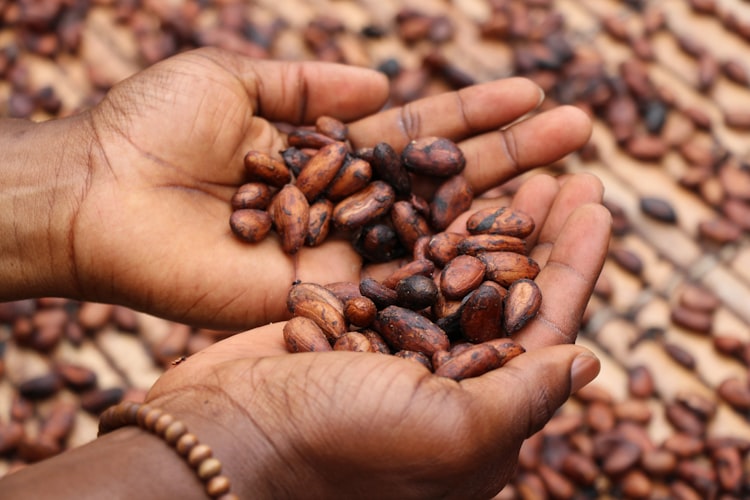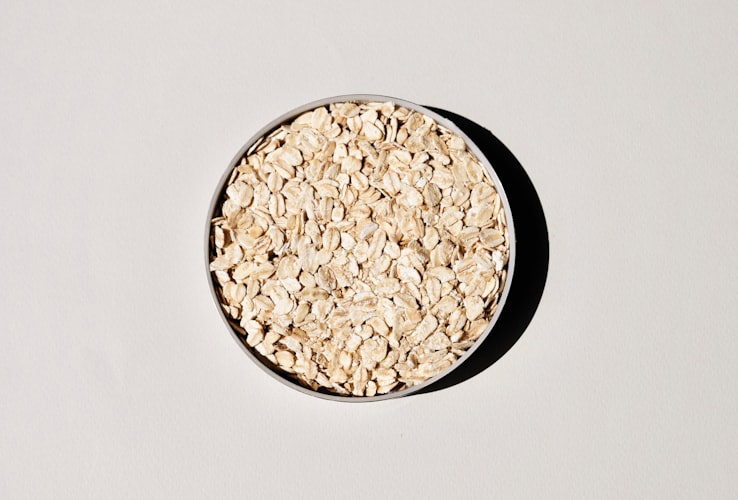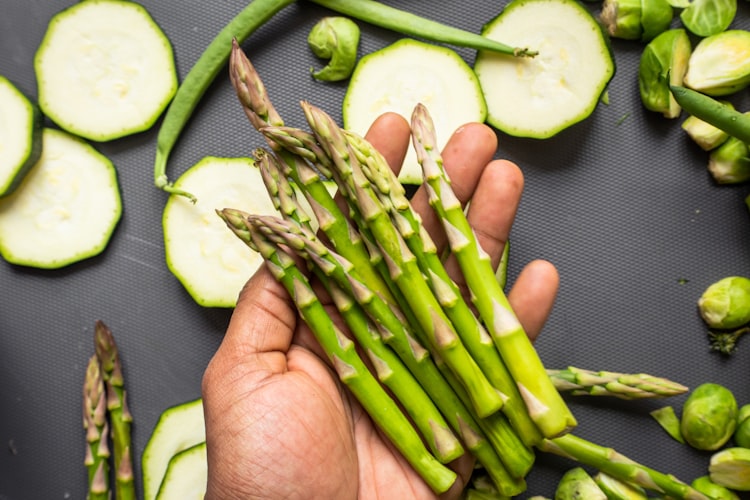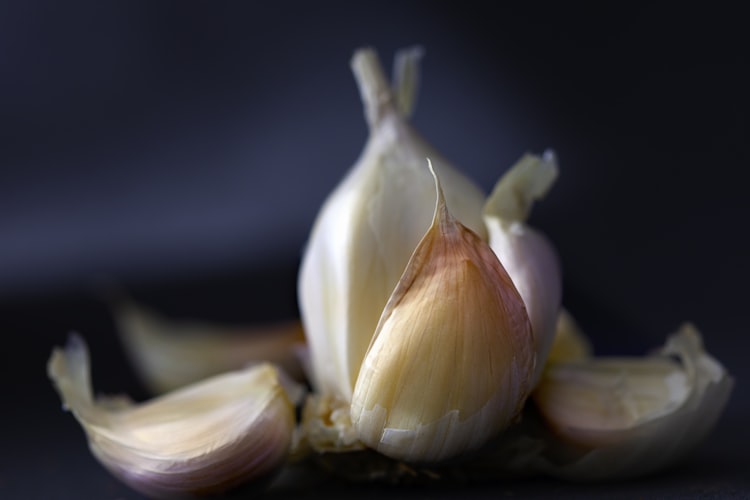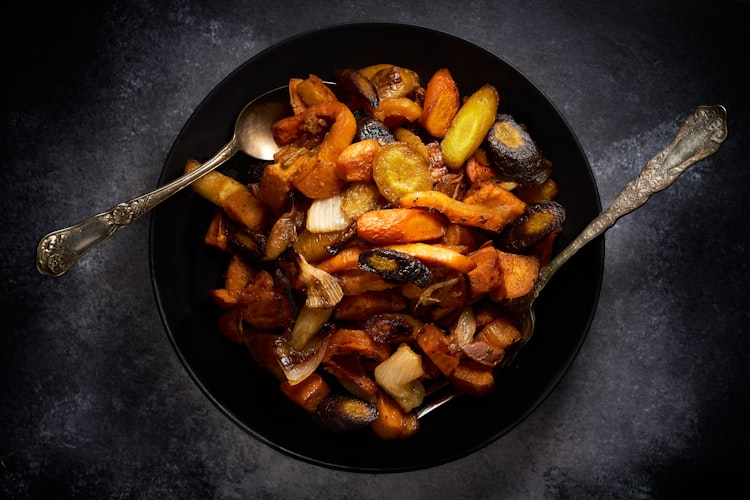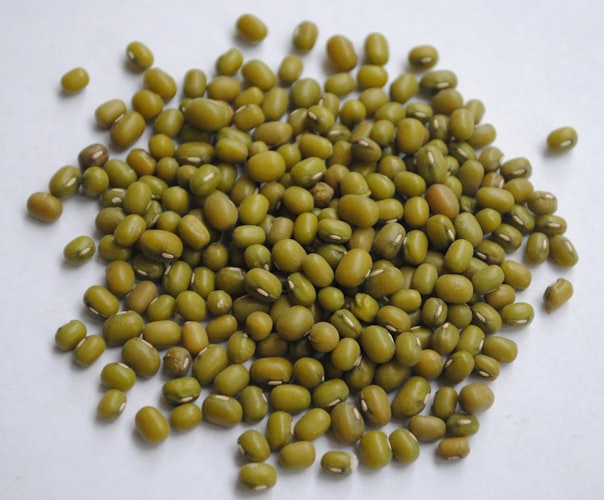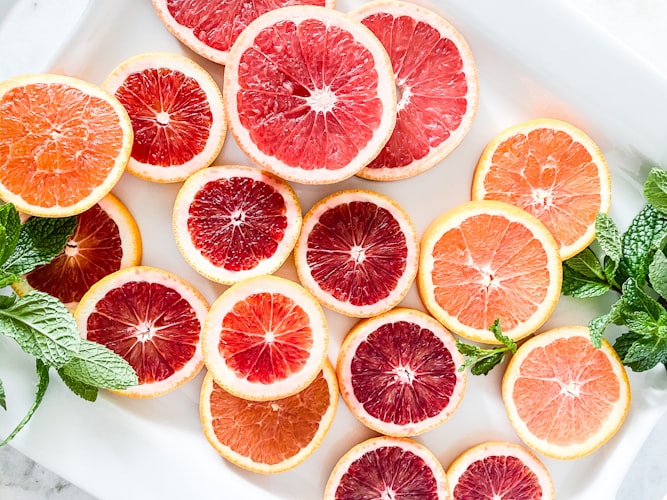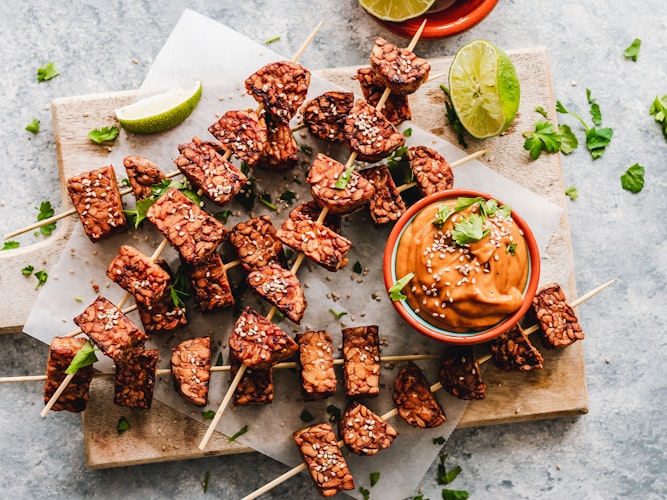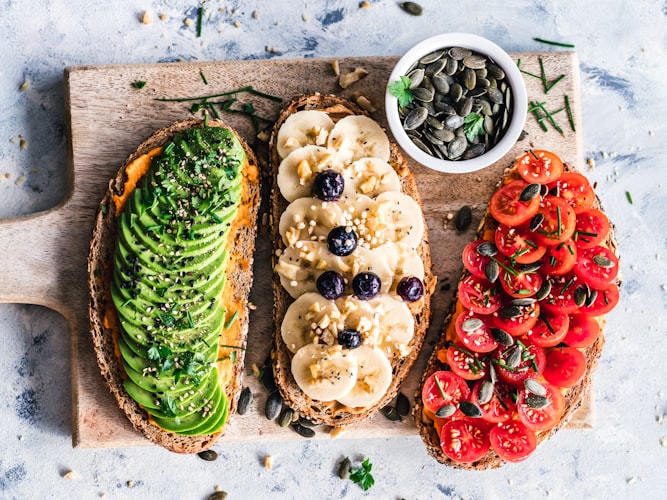
Prebiotic foods contain fibres and natural sugars that promote the growth of good bacteria in the gut. There are many foods that are suitable for vegans to consume which provide them with a good amount of prebiotics in their diet. In a vegan diet comprising of plant-based foods, there are plenty of sources of prebiotics.
We are here to provide you with a comprehensive look into the best sources of prebiotics when on a vegan diet. You can source prebiotics on a plant-based diet through vegetables, legumes, fruits, nuts and even seeds.
However, first we should ask ourselves the questions, ‘why do we even need prebiotics?’
Health Benefits of Prebiotics
Prebiotics are an integral component of gut health. It enables the promotion of good bacteria in your gut, which prevents the harm caused by bad bacteria. It does this by feeding the good bacteria in your digestive system.
Prebiotics work with probiotics to improve health. They have a close relationship which amounts to a powerful combination. For sourcing probiotics on a vegan diet, have a look at our article, ‘Probiotics for Vegans: The 12 Best Sources of Plant-Based Probiotics.‘
Prebiotics works to help improve digestion, which is generally an indicator for better overall health. The good bacteria needs prebiotics to fuel and grow, which is why they are so important for gut health.
Further to this, prebiotics helps promote the immune system and helps boosts its function. A healthy gut is usually associated with a healthy self. This is because a healthy gut facilitates the boosting of the immune system. Prebiotics help reduces cancer-causing enzymes and promotes the absorption of minerals and vitamins.
In addition to providing a healthy gut and immune system, prebiotics helps strengthen your bones by enabling the effective absorption of minerals in the gut. They also work to better your hormonal health. Many things affect the hormonal health of the self, including stress. Prebiotics help better hormonal health, by improving gut health, which has positive effects on stress and stress-related disorders.
Best Vegan Foods with Prebiotics
Prebiotics work with probiotics to help improve health. Though a greater chunk of the research is awarded to probiotics and the importance of probiotics in the diet, prebiotics should not be dismissed as unnecessary. They are an integral part of your health and you have a lot to benefit from ensuring that you source a good amount of prebiotics from your diet.
Hence, without further adieu, here is our list of the 30 best vegan foods with prebiotics.
1. Flaxseeds
You can include flaxseeds in almost anything. They are such a versatile seed that people love consuming. This is with just cause. Flaxseeds have heaps of nutrients and can be very beneficial for your health.
Flaxseeds are loaded with fibre, which is important to ensure that you have a healthy gut. They are a reliable source of prebiotics and can help maintain the health of your gut and keep your digestive system functioning smoothly.
2. Seaweed
This form of marine algae is a great source of prebiotics with some surprising health benefits.
You can use seaweed in dishes like sushi, rolls, soups and even soups, salads and smoothies.
Seaweed is loaded with vitamins and minerals and contains antioxidants which all help promote immune health. About 50-85% of the fibre content in seaweed is soluble fibre, which makes it even better for your gut.
There are polysaccharides in seaweed that help promote gut health by increasing the production of short-chain fatty acids which help nourish the cells lining the gut.
There are many health benefits of including seaweed in your diet and you are provided with a reliable source of prebiotics.
3. Wheat Bran
This is the outer layer of the whole wheat grain and can be a brilliant source of prebiotics. Wheat bran also contains a very special type of fibre which is made of arabinoxylan oligosaccharides (AXOS).
AXOS fibre has been proved to help boost the health of the gut, by promoting the growth of Bifidobacteria, which is a good bacteria in your gut.
Eating wheat bran will help you increase your Bifidobacteria count, which will help reduce digestive problems such as abdominal pain, cramping and gas.
A study has proven that grains that are rich in AXOS have antioxidant properties and can also have anti-cancer effects.
4. Jicama Root
Jicama root includes the prebiotic fibre, inulin. They are low in calories and high in fibre which makes them a healthy addition to any diet.
Jicama root can help improve digestive health and help those who suffer from insulin sensitivity. It can work to lower blood sugar levels.
Further to this, it is high in vitamin C, which is essential in maintaining a healthy immune system, which can help you fight diseases more effectively.
5. Yacon Root
Yacon root is very similar to sweet potatoes and has a high fibre content. It is rich in prebiotic FOS and inulin.
The inulin in Yacon root has a host of health benefits such as improved gut bacteria, reduced constipation, enhanced immune system, improved mineral absorption and the better regulation of blood fats.
Yacon root also contains phenolic compounds which have antioxidants properties and brings with it a host of other health benefits. It can be a valuable addition to your diet to keep your overall health in check.
6. Burdock Root
This vegetable is commonly used in Japan and has been proven to have some amazing health benefits. It has plenty of fibre (about 1.8 grams per 100-gram serving) and is rich in prebiotic inulin and FOS.
The benefits of inulin have already been mentioned and can provide your body with healthy bacteria to promote digestive and gut health.
Much like yacon root, burdock root also contains phenolic compounds which provide antioxidant properties.
7. Cocoa
The seeds from the Theobroma cacao tree are known as cocoa beans and are used popularly to make chocolate. These beans can be very healthy for you and can also be very delicious.
You can add cocoa powder to your smoothies, oatmeal or yoghurt to reap the health benefits of cocoa. The cocoa powder is made from crushed cocoa beans which enables the removal of the fat and cocoa butter.
Cocoa and the products of cocoa are an excellent source of polyphenols such as flavonols which have antioxidant and anti-inflammatory properties.
These polyphenols promote the growth of good bacteria in the gut which help reduce the effects of harmful bacteria.
With most chocolate products containing a lot of sugar, you should be careful about the cocoa products you use. You don’t want to source prebiotics and end up suffering from diabetes.
8. Konjac Root
Also known as elephant yam, konjac root is a vegetable grown underground, much like potatoes. The plant has been a part of Asian food and medicine for centuries and is often used as a dietary supplement for the health benefits it boasts.
You can make flour out of konjac root and the flour usually contains about 70-90% glucomannan fibre which is a highly viscous dietary fibre. The glucomannan helps the promotion of good bacteria in the colon and can work to help relieve constipation. It has also been noted to help improve blood cholesterol and aid with weight loss by improving carbohydrate metabolism.
Konjac root is found in many forms of food such as shirataki noodles. You can even find glucomannan supplements to directly ingest the good stuff to reap the benefits.
9. Apples
This common fruit is loaded with fibre and can be an excellent source of soluble fibre, Pectin. It is pectin that is found in apples that have prebiotic properties.
Pectin in apples helps the promotion of microbiota and decreases inflammation. It also works to suppress weight gain and fat accumulation which can help prevent obesity. ‘An apple a day, keep the doctor away…’
Pectin works to promote the good bacteria in your gut, which thereby prevents the effects of bad bacteria.
Apples help improve the health of the heart, can reduce the risk of asthma and other pulmonary disorders. You have much to gain by simply adding apples into your diet.
10. Oats
Oats have heaps of health benefits and can be an excellent source of fibre. They have tons of prebiotic benefits. Oats contain a large amount of beta-glucan fibre and some resistant starch.
The beta-glucan fibre found in oats has been associated with healthy gut bacteria, the lowering of LDL (bad) cholesterol, the bettering of blood sugar control and reducing the risk of cancer.
Oats can help slow down digestion which can help you control your appetite, which can be very helpful if you are trying to lose weight.
11. Barley
Barley is a popular cereal grain that is used to make beer. A 100 gram serving of barley contains about 20 grams of beta-glucan.
The health benefits of beta-glucans were stated earlier when we spoke about oats. They help promote the growth of good bacteria in your gut, which prevents the harm caused by bad bacteria.
The beta-glucan in barley is also known to help lower the total LDL (bad) cholesterol in your system, which can help lower the risk of cardiovascular disease. It can also help promote the better control of blood sugar levels.
Barley helps to suppress appetite which can be beneficial if you are trying to lose weight.
12. Bananas
Yet another common fruit, eating a banana every day could help you source a reliable amount of prebiotics. They are rich in vitamins, minerals and fibre and does contain small amounts of inulin.
Unripe bananas or green bananas are high in resistant starch which has prebiotic properties. You can eat unripe bananas cooked or fried.
Bananas are low in calories and have a good amount of fibre. Further to this, it can be an excellent source of potassium in your diet.
13. Asparagus
This popular vegetable is an excellent source of prebiotics and can be a nutritious component of your diet.
The vegetable contains inulin which helps promote digestive health amongst other things and helps maintain optimum levels of glucose and insulin.
Inulin is a soluble fibre that feeds the good bacteria in your stomach. The vegetable has been linked to the prevention of certain cancers. They also contain compounds that have both antioxidant and anti-inflammatory properties.
14. Leeks
Leeks provide various health benefits and can be a reliable source of prebiotics.
Leeks are nutritionally dense and have very low calories with a high amount of vitamins and minerals. They also contain inulin, which helps promote the growth of healthy gut bacteria and the breakdown of fat.
Leeks also contain a high amount of vitamin K which helps the promotion of blood clotting. 1 leek which is about 89 grams contains about 42 mcg of vitamin K, which is 35% of the daily value.
15. Onions
Much like leeks, onions contain prebiotics which can be great for your gut health. They are a tasty and versatile vegetable and can be incorporated into a variety of dishes.
They are rich in inulin and FOS. FOS helps strengthen gut flora and helps in the breakdown of fat. It also aids the immune system by increasing nitric oxide production in cells.
Onions contain the flavonoid quercetin which provides them with both antioxidant and anticancer properties. They can provide various benefits to cardiovascular health and can be used for their antibiotic properties.
16. Garlic
Containing antioxidant, anti-inflammatory and lipid-lowering properties, garlic can be a great addition to a dish for flavour. It brings with it a heap of health benefits including prebiotics which helps promote the growth of good bacteria in your gut.
Garlic is great for cardiovascular health. It contains various compounds that help reduce the risk of developing cardiac issues and have anti-tumour effects. Garlic also helps lower blood sugar levels, which is beneficial if you are suffering from insulin sensitivity.
Garlic could also help protect against asthma. It has anti-inflammatory properties which enable it to do so. All in all, adding garlic to your dishes will help you go a long way in maintaining a healthy gut and a healthy self.
17. Jerusalem Artichoke
Also known as sunroot, sunchoke or earth apple, Jerusalem artichoke is a part of the sunflower family and has many health benefits.
The vegetable provides 2 grams of inulin per 100-gram serving. As mentioned within this article, inulin helps promote the growth of good bacteria and promotes digestive health. It also works to aid in the absorption of minerals in the large intestine.
Jerusalem artichoke could help you improve your immune system and can even work to help lower cholesterol levels. They are high in thiamin or vitamin B1; a deficiency of which can lead to fatigue.
18. Dandelion Greens
You can cook the greens of dandelion or you can even consume them raw. They are a great source of fibre and contains about 1.92 grams per 1 cup serving (55 grams). A greater portion of the fibre is inulin.
The insulin can help prevent constipation and help improve your gut health. It can also work to help promote your immune system.
They are also known to have antioxidant, anti-inflammatory and anticancer properties.
19. Chicory Root
These are a part of the flowering plant in the dandelion family. It has a coffee-like flavour and has been used for centuries for cooking and medicine. It is also an excellent source of prebiotics.
About 68% of the chicory root fibre is the prebiotic fibre inulin. The inulin in chicory root can help promote the growth the healthy bacteria in the gut, can improve digestion and relieve constipation.
It has also been proven to be effective in preventing diabetes. Further to this, they contain antioxidant compounds which protect the liver from oxidative damage.
20. Savoy Cabbage
This is an excellent source of prebiotics and other nutrients, all of which help boost immune health and digestive health.
Savoy cabbage contains vitamins B and C and is a reliable source of naturally occurring prebiotics. It is great for your gut and contains a good amount of fibre.
Raw savoy cabbage contains about 3.1 grams of fibre in a 100-gram serving.
21. Chickpeas
This is a reliable source that is readily available that can be a great source of prebiotics. Chickpeas have an excellent nutrient profile which makes them one of the most reliable legumes to consume for various health benefits.
Chickpeas can help promote digestive health and is a healthy source of plant-based carbohydrates and protein.
When it comes to prebiotics, a 100-gram serving contains about 12.2 grams of fibre. This high fibre content of chickpeas makes it essential for gut and digestive health.
22. Lentils
Lentils are filling and can be a great addition to your diet if you are trying to lose weight. Further to this, when on a vegan diet, reliable sources of plant-based protein should be highlighted and added to the diet. Lentils are an excellent source of plant-based protein.
It is easy to digest and has many health benefits. It is also rich in prebiotics and contains about 10.8 grams of fibre in a 100-gram serving. This helps the stimulation of good bacteria in your gut, which prevents the harm caused by bad bacteria.
23. Beans
There are various types of beans; kidney beans, baked beans and soybeans. All beans contain essential compounds which help boost the health of your gut.
Beans are a reliable source of potassium and it is the nutrient profile of beans that makes it a staple dish in many countries.
Beans are rich in prebiotics and fibre. For instance, a 100 gram serving of red kidney beans contains about 15.2 grams of fibre.
24. Watermelon
This delicious fruit is a great treat in the summer. Enjoyed by many people around the world, watermelons are a great source of prebiotics.
The prebiotics in watermelon help boosts the good bacteria in your gut. It is the water content of watermelon which makes it so beneficial for hydration.
All in all, this delicious fruit can help you maintain a healthy gut and keep you well hydrated in the process.
25. Grapefruit
Grapefruit is considered an ideal choice for vegans who are trying to source prebiotics. They have a high fibre content and is an excellent source of vitamins.
In particular, grapefruit contains a high amount of vitamin A and C. The high fibre content of grapefruit makes a great for your gut. It is a reliable source of prebiotics on a vegan diet.
26. Almonds
Almonds are tasty nuts that are high in dietary fibre and is a reliable source of prebiotics on a vegan diet. A bowl of 100 grams of almonds contains about 12.5 grams of fibre.
They can be a great addition to various dishes. If you are making smoothies, you would benefit much by adding almonds into the mix.
It is also a great source of calcium on a vegan diet.
27. Pistachio Nuts
Pistachio nuts are yummy to eat and are a favourite amongst vegans. It is a good source of plant-based protein and is high in fibre, vitamins and minerals.
They also contain a good amount of prebiotics which can help promote the growth of good bacteria in your gut. All in all, pistachio nuts can be a great component of a vegan diet. If you aren’t eating these nuts already, you should!
28. Tempeh
Tempeh is fermented soybeans and depending on the quality of the tempeh that you purchase, it can be a rich source of prebiotic fibre.
Tempeh is also known to have anti-inflammatory properties and can help with cognition. As mentioned, it contains prebiotics which helps with digestive health.
29. Spinach
Spinach is a superfood with a whole lot of health benefits. Further to the fact that it contains a good amount of vitamin K and vitamin C, it also contains phytochemicals that help protect gut health.
It is an excellent source of prebiotics. Spinach contains a sugar molecule that feeds the good bacteria in the gut which enables the creation of a protective barrier against bad bacteria.
You can eat spinach raw, cooked or even blended in a smoothie. For the various health benefits of spinach, read our article on, ‘Is Spinach a Superfood? (20 Health Benefits of Spinach in Your Diet.)‘
30. Coconut and Coconut Flour
Coconut is an excellent source of prebiotics. Whether you speak of the meat, the milk or even coconut flour, coconut provides a versatile and brilliant means of sourcing your prebiotic requirements.
It contains a wholesome amount of prebiotics and can be a versatile component in many dishes. You could use coconut flour in baking. Coconut milk can be added to smoothies and used in making desserts. While the coconut meat can be added into various stir-fries and dishes.
Coconut can be a reliable means to source prebiotics on a vegan diet.
Prebiotics on a Vegan Diet
A vegan diet is composed of plant-based food. Hence, you should be eating a whole lot of fibre. If you would like to reap the health benefits by ensuring that you have a healthy gut, include as many of the prebiotic sources we have mentioned within this article.
Prebiotics help you better manage your gut and keep your gut health in check. A healthier gut means a healthier self, which means you would be healthier and happier.
We aimed to provide you with a reliable list of sources that you can pick and choose from based on preference and availability. Some of the foods on this list are hard to source, while others like apples and bananas are readily available. All in all, you don’t really have an excuse for not including a good prebiotic source into your diet; we hope you do!
We hope that you found our list of sources useful and that reading this word to word has helped you on your vegan journey.
Happy Munching!



